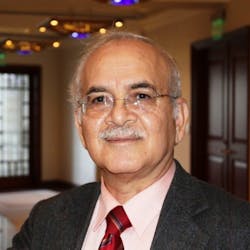The Evolving Role of Bahá’í Scholarship
- Details
- Resources
The Bahá’í Faith has long had challenges with established Islamic scholarship: it must free itself from existing attitudes and practices and establish Bahá’í scholarship on its own merits. Bahá’u’lláh abrogated the authority of the Ulama (Muslim clergy) in many fields of religious affairs, asking Bahá’í scholars to be concerned with the requirements of the time. The nourishment and emergence of Bahá’í scholars and scholarship, its place within the community, its relationship with the Faith’s Institutions, and the potential for collaboration amongst Bahá’í scholars, and with the broad community of scholars are some of the substantial questions to be addressed.
Vahid Rafati
Vahid Rafati, native of Shiraz, received his BA Psychology from Tehran University. Civil war interrupted studies in Lebanon, and he completed his PhD in Islamic Studies at UCLA. He has served at the Research Department of the Bahá’í World Centre since 1980 and has numerous publications in Persian and English.

38th Annual Conference
Scholarship and the Life of Society
The views expressed in this recording are those of the presenter and do not necessarily represent the views of the Association for Bahá’í Studies, nor the authoritative explications of Bahá’í writings.